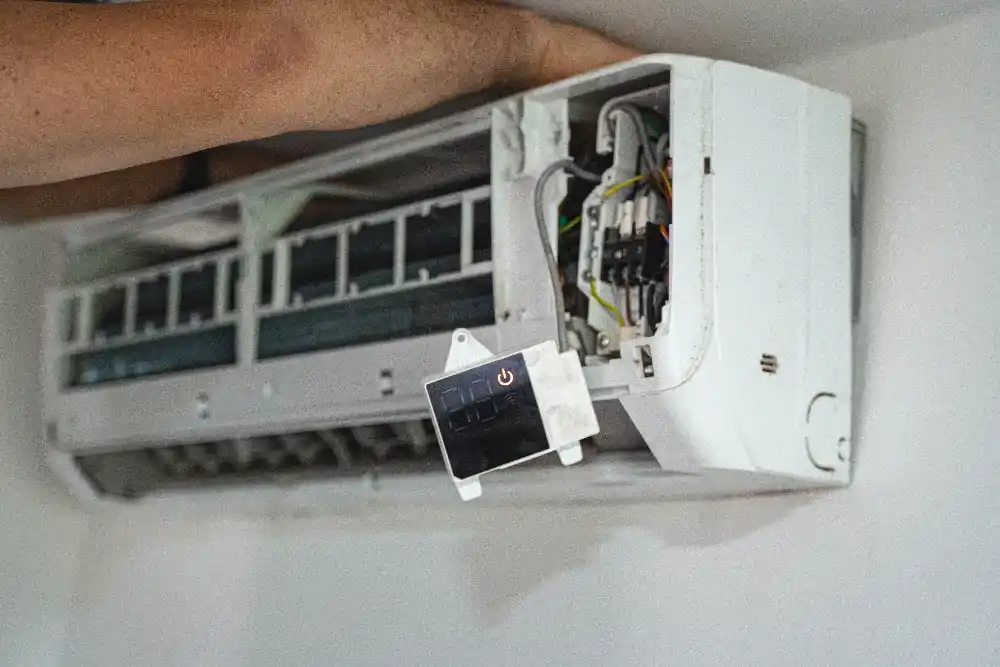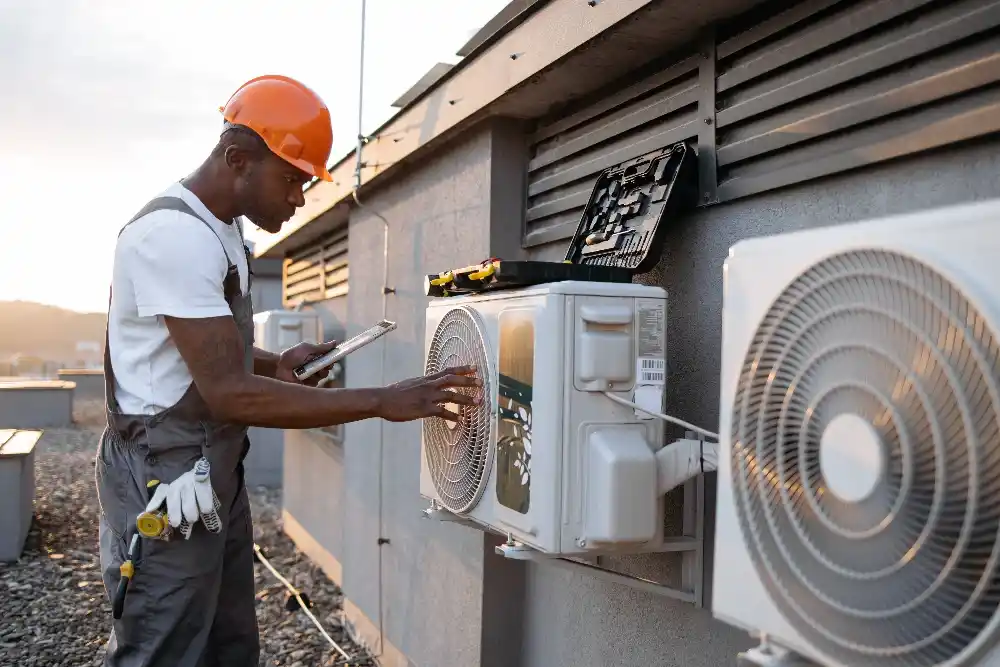It’s a hot day, and you finally get home looking forward to relaxing in the superb comfort of your house—only to find your AC not turning on or not cooling like it should. If you’re asking, “Why is my AC not working?” you’re not alone. This is a common concern for homeowners, especially during the peak of summer.
Let’s break down some of the most frequent reasons your air conditioner is not working, what you can do to fix it, and how to keep it running well for years to come.
What Would Cause My AC to Not Kick On?
There are several possible reasons your AC stopped working. Some are simple fixes, while others might require professional help.
1. Power Supply Issues
A lack of power is one of the most common causes of an air conditioner not working. This could be due to a blown fuse, a tripped breaker, or an issue with the wiring. Check your home’s electrical panel first if your AC is not turning on—no hum, no fan, no cool air.
2. Thermostat Troubles
If your thermostat isn’t set correctly or is malfunctioning, your AC won’t know when to kick on. Dead batteries, outdated settings, or wiring issues in the thermostat can all lead you to ask, “Why is my AC not working?”
3. Airflow Obstructions
Blocked vents, dirty filters, or closed dampers can restrict the airflow, making it seem like your AC stopped working even when running. Poor airflow reduces efficiency and causes hot and cold spots throughout your home.
4. Refrigerant Leaks
Refrigerant is the lifeblood of your air conditioning system. If there’s a leak, your AC may run but won’t cool properly. You might hear hissing sounds, notice ice buildup, or feel warm air coming from the vents—all signs that your air conditioner is not working due to low refrigerant levels.
5. Compressor and Condenser Problems
The outdoor unit houses your compressor and condenser. If these components are damaged, dirty, or worn out, your AC may not turn on or cool effectively. Regular maintenance helps prevent these costly problems.
6. Drainage Issues
Air conditioners pull humidity from the air, which drains through a small pipe. If that drain gets clogged, water backs into the system and may shut it down. If your AC stopped working and you notice moisture or leaks around the unit, a blocked drain line might be to blame.
How Can I Get My AC to Start Working Again?
Before calling in a professional, you can try a few things on your own if you’re wondering “Why is my AC not working?”
Check the Power Source
Start by checking your circuit breaker. If it’s tripped, reset it and see if your AC starts. Also, ensure the thermostat is getting power—try replacing the batteries if needed.
Inspect the Thermostat
Double-check the settings. Is it set to “Cool”? Is the temperature lower than the current room temperature? Try turning it off and on again or adjusting the settings. If it’s digital, reboot it by removing the batteries for a minute.
Examine the Air Filter
A dirty air filter can block airflow and make it seem like your air conditioner is not working. Replace your filter every 1-3 months, especially in heavy-use seasons. This is a quick and easy fix that often solves the issue.

Look for Visible Damage
Inspect the outdoor unit for signs of damage, debris, or ice buildup. Clear away any leaves or dirt from the condenser coils. Inside, check for unusual sounds, smells, or puddles of water near the unit.
Call a Professional
If you’ve gone through all the above steps and your AC is still not turning on, it’s time to call in a trained HVAC technician. Trying to fix deeper issues like refrigerant leaks or electrical faults without the proper tools and knowledge can cause more harm than good.
How to Keep Your AC Running Smoothly
Once your AC is up and running again, you’ll want to ensure it stays that way. Here are some tips to keep your cooling system in top shape:
Regular Filter Changes
Replace your air filters regularly. This helps your system breathe easier and keeps your indoor air clean. Clean filters reduce stress on your unit and improve efficiency.
Annual Professional Tune-Ups
Schedule a yearly maintenance visit to catch minor problems before they become big AC repairs. Technicians will check the refrigerant, inspect moving parts, and ensure everything operates correctly.
Clean Condenser Coils
The outdoor unit’s coils can gather dust and debris over time. Gently hose them off or brush away dirt to help your AC release heat efficiently. Dirty coils force your unit to work harder.
Check and Seal Ducts
Leaky ducts waste cool air and force your system to work overtime. Sealing your ducts and checking for leaks can improve airflow and lower energy bills.
DIY vs. Professional AC Repair: Make the Right Choice
While fixing things yourself is tempting, not every problem has a DIY solution. Replacing a filter or checking a breaker? That’s a great start. But it’s best to call in an expert if the issue lies deeper—like electrical damage, compressor failure, or refrigerant leaks.
Messing with the internal parts of your AC can lead to bigger damage and even void your warranty. Professional technicians have the right tools and training to fix the problem quickly and safely.
Conclusion
So, the next time you wonder, “Why is my AC not working?”, don’t panic. Start with the basics: check your power source, thermostat, and air filter. Many issues are simple and easy to fix. But for bigger problems, it’s always better to trust professionals.
At Clark & Rush, comfort is essential, especially during those hot summer. When your AC stops working, you can count on us to diagnose the issue and restore your home to cool and comfortable. Let us help you breathe easier—we’ve got your back.


